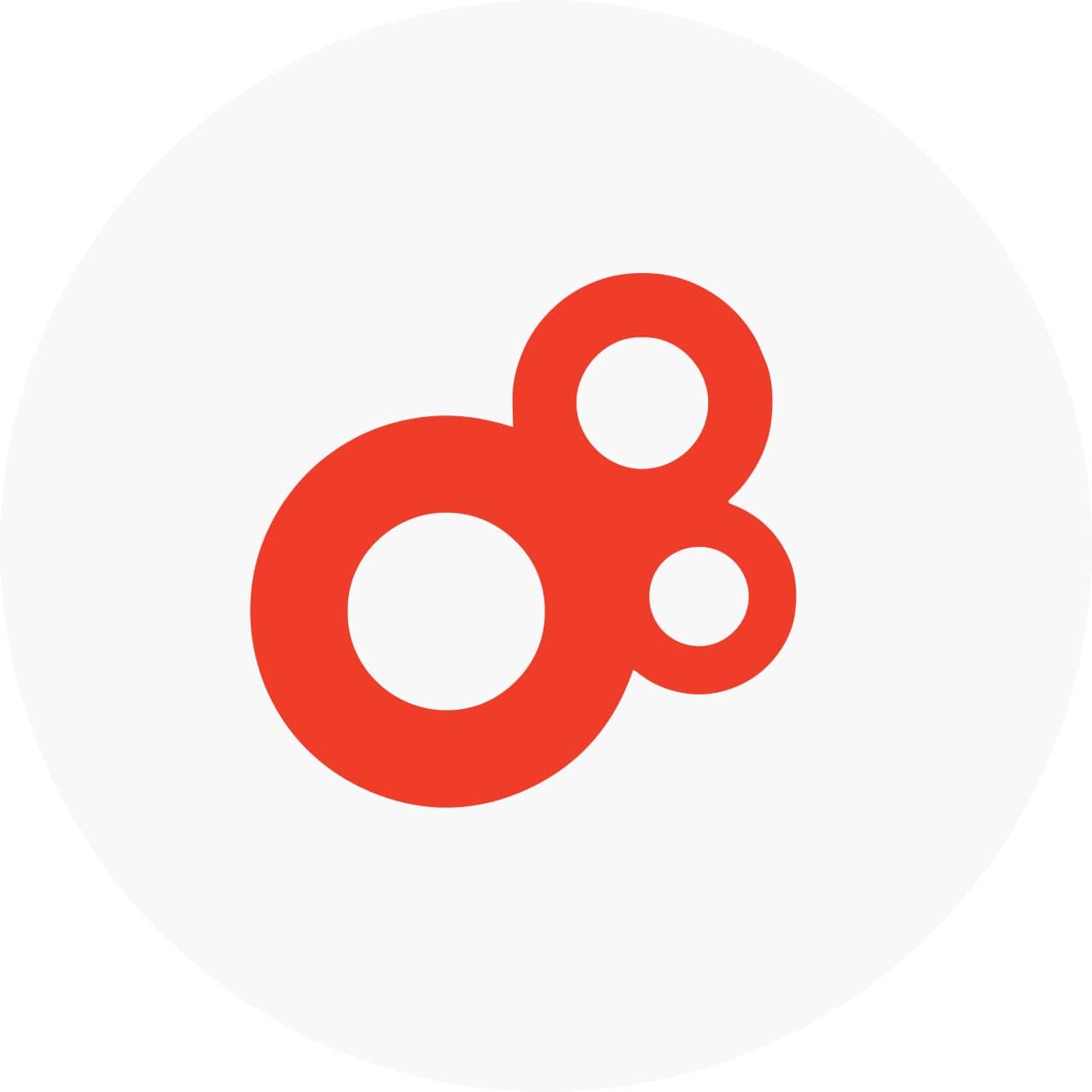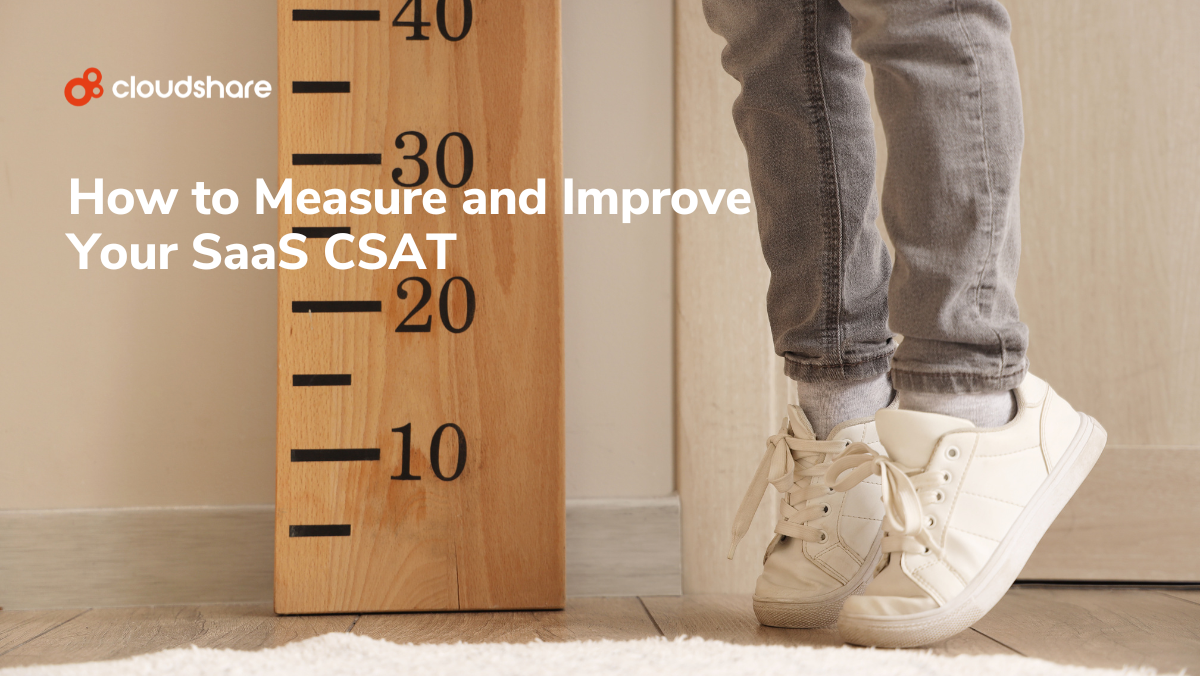
(Last updated in December 2023)
What’s the million-dollar question? Well, there are a couple, but for now let’s focus on one that we can ask a lot: How to be a successful sales engineer.
The simple answer is a combination of sales skills and technical sales techniques, including knowledge of your product. But in fact, there’s a lot more to this delicate balance than meets the eye, and a brilliant sales engineer is one who knows how to play both chords simultaneously, along with one more, often overlooked, requirement: presentation soft skills.
The presentation, be it a sales demo, POC, or otherwise, is at the very core of the SE’s job, where knowledge meets the audience and all the magic begins to happen. Only we know all too well that in too many presentations this is not the case. And whether this is the result of a burnt-out SE giving more than 20 presentations a week or a lack of expertise in one of the required skill sets, the fact is: bad presentations cost us money. On more than one occasion, the SE’s presentation might just be a deal-breaker – or maker.
So indeed, what makes a brilliant SE? It isn’t just having technical expertise or amazing sales capabilities, but rather it’s mastering the art of giving an awesome presentation to a crowd that is made up of humans, not blank screens.
Let’s look at 9 technical sales tips that can help you make all the difference for sales engineers looking to master the art of presentation. But first, we’ll explore why these tips are crucial and how you can use many of them to scale your operations.
Why Effective Presentations Are Crucial for Sales Engineers
An effective sales presentation bridges the gap between complex technical details and client understanding. One of the core sales engineer best practices is to focus on providing the technical details and communicating them without being jargon-heavy.
Effective presentations are mission-critical for sales engineers as they build rapport, demonstrate expertise, and pave the way for the rest of the customer journey.
For instance, sales engineers demonstrating a SaaS platform must be able to answer questions, speak to the lead’s technical level, and showcase how the platform will address the lead’s needs.
The goal of a sales engineer is to help clients grasp the functionality and value of the platform with effective presentations. Reaching this goal with every presentation is vital to turning leads into clients.
How Sales Engineers Can Scale Themselves
There are plenty of essential technical sales techniques to explore, but before we dive in, let’s discuss how you can scale your workflows and processes:
- Create processes and standards for sales presentations: Every presentation will be unique, but many foundational workflows and preparation tasks will be the same. Identify these similarities and standardize tasks that are typically the same or similar. For example, you can create pre-made virtual environments with your SaaS platform and then make small changes as necessary for each lead.
- Leverage automation when possible: Many business-focused platforms offer automation tools — explore them. Freeing yourself from repetitive or tedious tasks helps shift your focus to higher-impact tasks. You can likely automate scheduling, appointment reminders, and sending basic product information so you can focus on the presentation.
- Develop educational content: Explaining your product or service in a way that understandably conveys complex information is vital for sales engineers. Educational content such as explainer videos, articles, or white papers are invaluable in that regard. Bear in mind, however, that successfully developing this kind of content requires at least some learning and development expertise – you might consider reaching out to a vendor specialized in the task.
- Collaborate with other departments: As a sales engineer, you’ll have a unique perspective to provide other teams to enable better sales presentations. You’ll be interacting directly with leads who are evaluating your company — what do they dislike? What do they need that you’re missing? What capability are they excited to offer you? Providing this information to other departments aids in creating educational content, streamlining your own presentations, or improving your platform to help you close more sales.
Following the technical sales tips below lays the foundation for scaling your operations, so keep that in mind as you start building and refining your sales processes.
1. Combine Social Proof With Technical Sales Techniques in Your Presentation
“Everybody’s doing it!” might sound uncouth and irrelevant to a professional, tech-oriented audience who are completely motivated by rational thinking. But the truth is, tech or no tech, people are inclined to follow emotional messages more than technical explanations. The point is, you’ll want to make your audience realize that they will be in very good company if they decide to buy your product. And you do that by subtly inserting examples of other high-end customers who had a similar problem or who enjoyed a specific solution from you.
Social proof is an excellent stimulant to establish credibility for your brand; don’t hesitate to use it.
2. Don’t Forget to Tell a Story
While preparing your presentation, don’t just organize slides with cute little clip art images and endless streams of technical data… Think of your PowerPoint as a tool to convey a story. Your audience is eager to understand what you can do for them. So take that pile of data or repurposed marketing content, and make it into a comprehensive story with a clear conclusion: the solution you’re offering is the one to solve your potential customer’s problem.
3. Begin With a Few Questions
If you start your presentation by asking a few informed questions, you’ll have a better chance of really understanding your audience’s technical needs. This is one of those technical sales tips that’s so important. Once you know what your audience wants, you’ll be able to tailor your content to address their pain – making the presentation as useful as possible.
4. Make It No Longer Than 20 Minutes
Seriously, anything longer than that is anything but a presentation. Don’t put your audience through an endless lecture and tedious data overview. If it takes you longer than 20 minutes to convey your message, you’re probably doing something wrong, and either way, your audience will be too worn out to pay close attention or retain what you’re saying.
5. Know Your Competition
Any solid argument suggesting your solution is the best for your potential customer starts with understanding other products on the market. That’s why sales engineers must be committed to understanding not only the technical value of their solution but also those of their competitors. This way, when your audience poses difficult questions on the difference between you and the competition, you’ll know exactly what to say.
6. Study Your Audience
Sales engineers represent the technical aspects of how their product solves specific customer problems. In order to do that, they need to research their potential customers as part of their standard preparation, and they need to know their audience’s pain points.
Often the audience is diverse in areas of interest and level of technical understanding; a brilliant SE makes it a point to give a “custom-made” presentation, with messages tailored to specific potential customers.
So first, be well-prepared, then focus on listening to your crowd and gaining their feedback; it’s the only way you’ll know how to address their most acute pain points.
7. Leave Time for Q & A
This one is a mandatory requirement for how to be a successful sales engineer – and it’s knowing your audience. Asking and answering questions is the cornerstone of good selling for two main reasons:
Q&A is an opportunity to be a better listener to your potential customers, which in turn gives you a sense of the issues that bother them the most and what they care to know about.
Asking questions keeps your audience engaged and helps to shape the basis for their decision.
In fact, this often neglected aspect of the SE presentation might just make or break the deal – depending on how well you answer the difficult questions.
8. Pay Attention to Personal Style and Non-Verbal Messaging
Good speaking strategies help you articulate the value of your solution, but they won’t win over your crowd’s hearts. Like any other sales rep, in order to advance your sales, you’ll need to use different non-verbal tactics to get your audience’s attention. Here are a few suggestions:
Prepare well, but leave some time for spontaneous communication with your audience.
Stand up and “own” your presentation. Don’t just sit down in front of your laptop; support your arguments with a comfortable, confident posture.
We all have bad days. But you shouldn’t let your emotional state take control over the presentation.
Look at your audience. Don’t spend your precious time reading the text from your PowerPoint slides. Eye contact makes a world of difference – especially if you’re looking to demonstrate your expertise and convince your audience.
9. Remember That You – And Your Solution – Are Not the Focus of the Presentation
What is? The value proposition. The way your solution can help solve your potential customer’s problem. Once you realize that, your presentation will start with the customer and work its way back to your solution – not the other way around.
Learned These Technical Sales Tips by Heart? Let’s Conclude With This…
The ultimate purpose of sales engineers is to be part of the sales team in selling their product. And yet, they have a slightly differentiated purpose, specific to their technological expertise: uncovering and resolving the concerns of potential customers by demonstrating the technical value of their solution and how it can help your customer to reach their goal.
That is the main purpose of every sales engineering presentation. Technical sales techniques are your friend here. But while many perceive it as mostly technical, a successful presentation actually depends on the SE’s personal style, communication skills, and ability to tell a story to a crowd that just happens to be made up of humans – not computers.
Give your presentations a boost and wow your audience.
References
Kraner, S. (2011, April 23). 20 Best Practices For Technical Demos and Presentations. Retrieved from http://www.eyesonsales.com/content/article/20_best_practices_for_technical_demos_and_presentations/
MOURER, D. (2008, June 7). SE PRESENTATION SKILLS. Retrieved from http://www.thesalesengineer.com/2008/06/07/se-presentation-skills/
MOURER, D. (2015, September 22). DO CUSTOMER REFERENCES MATTER MORE THAN PRODUCT FEATURES? Retrieved from http://www.thesalesengineer.com/tag/presentation/
Pragmatic Marketing. (2007, August 10). The Role of Sales Engineer in Technical Sales. Retrieved from http://pragmaticmarketing.com/resources/the-role-of-sales-engineer-in-technical-sales
Sales Blog. (2016, January 6). WHAT MAKES AN AWESOME SALES ENGINEER? Retrieved from http://www.lottspace.com/what-makes-an-awesome-sales-engineer.html#
Sales engineer training. (n.d.). WHAT SKILLS DO I NEED TO BE A SALES ENGINEER? Retrieved from http://www.salesengineertraining.com/what-skills-do-i-need-to-be-a-sales-engineer




